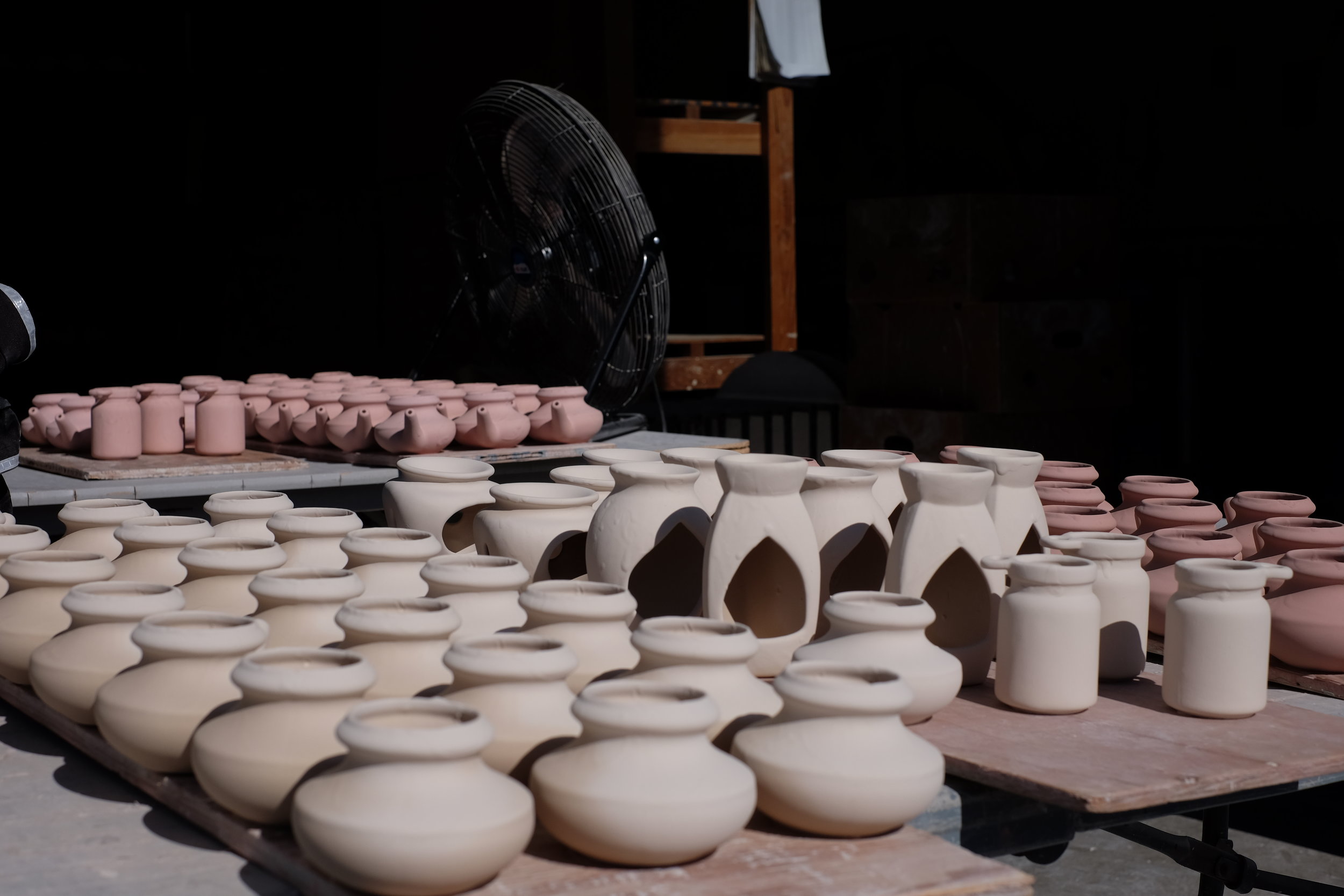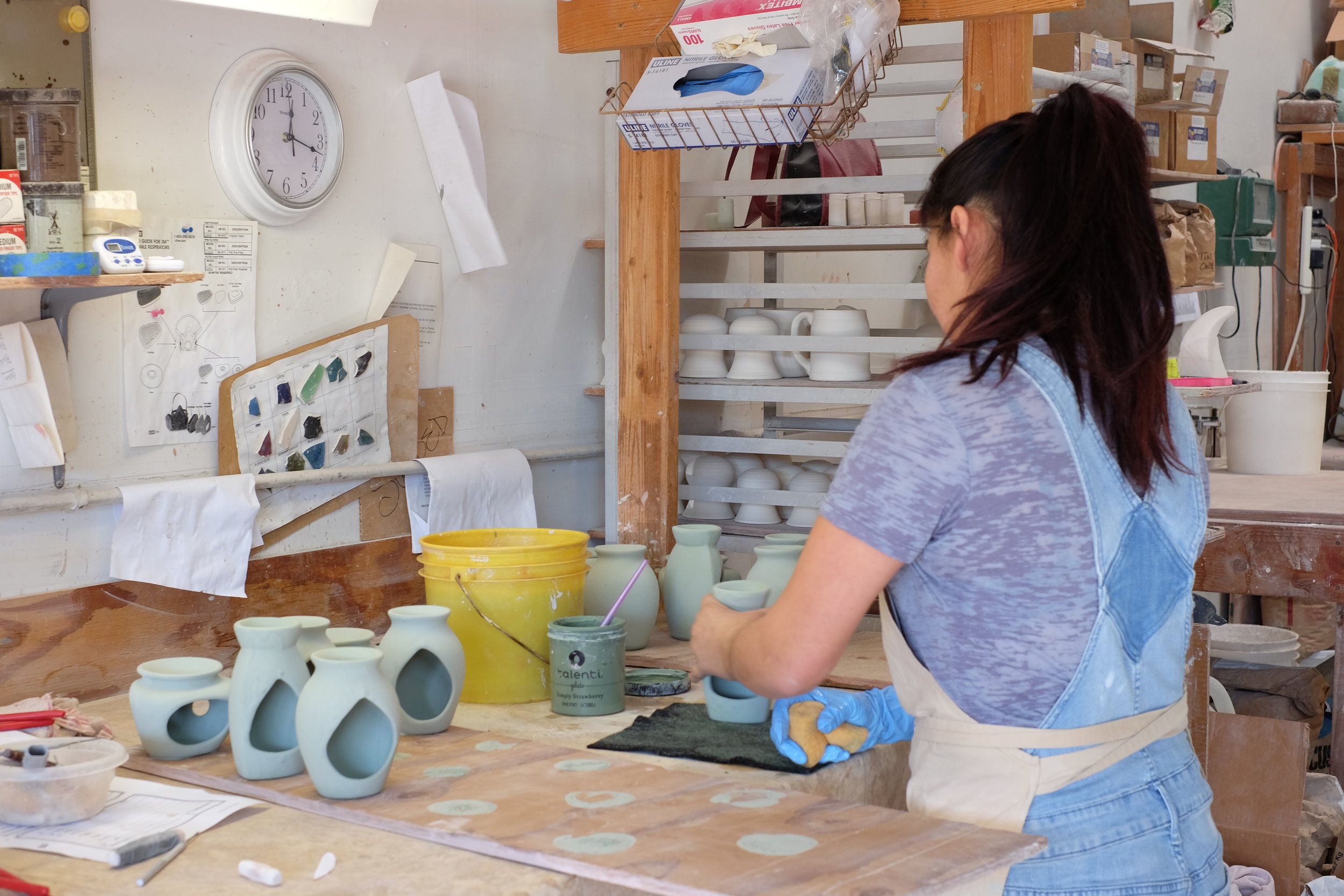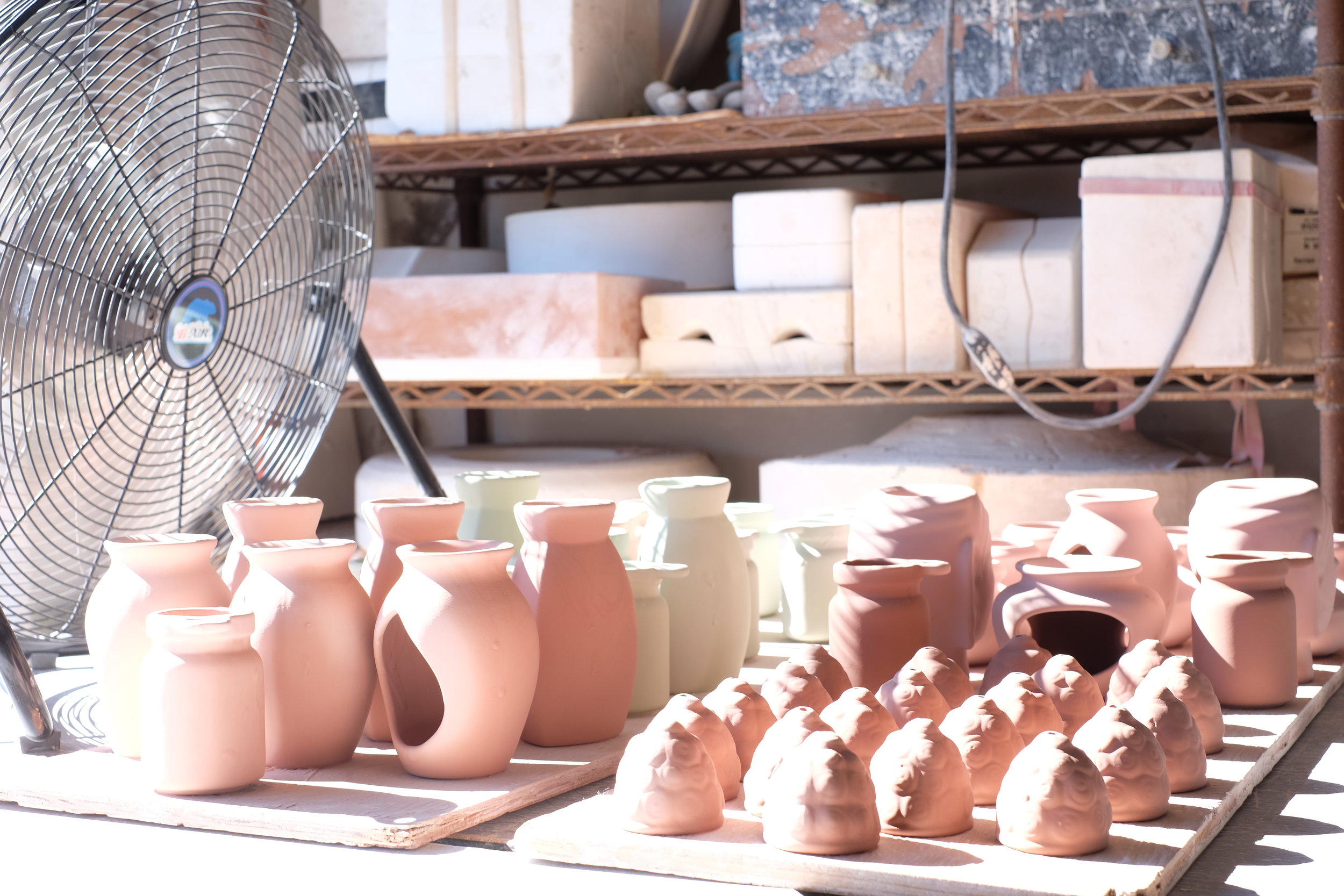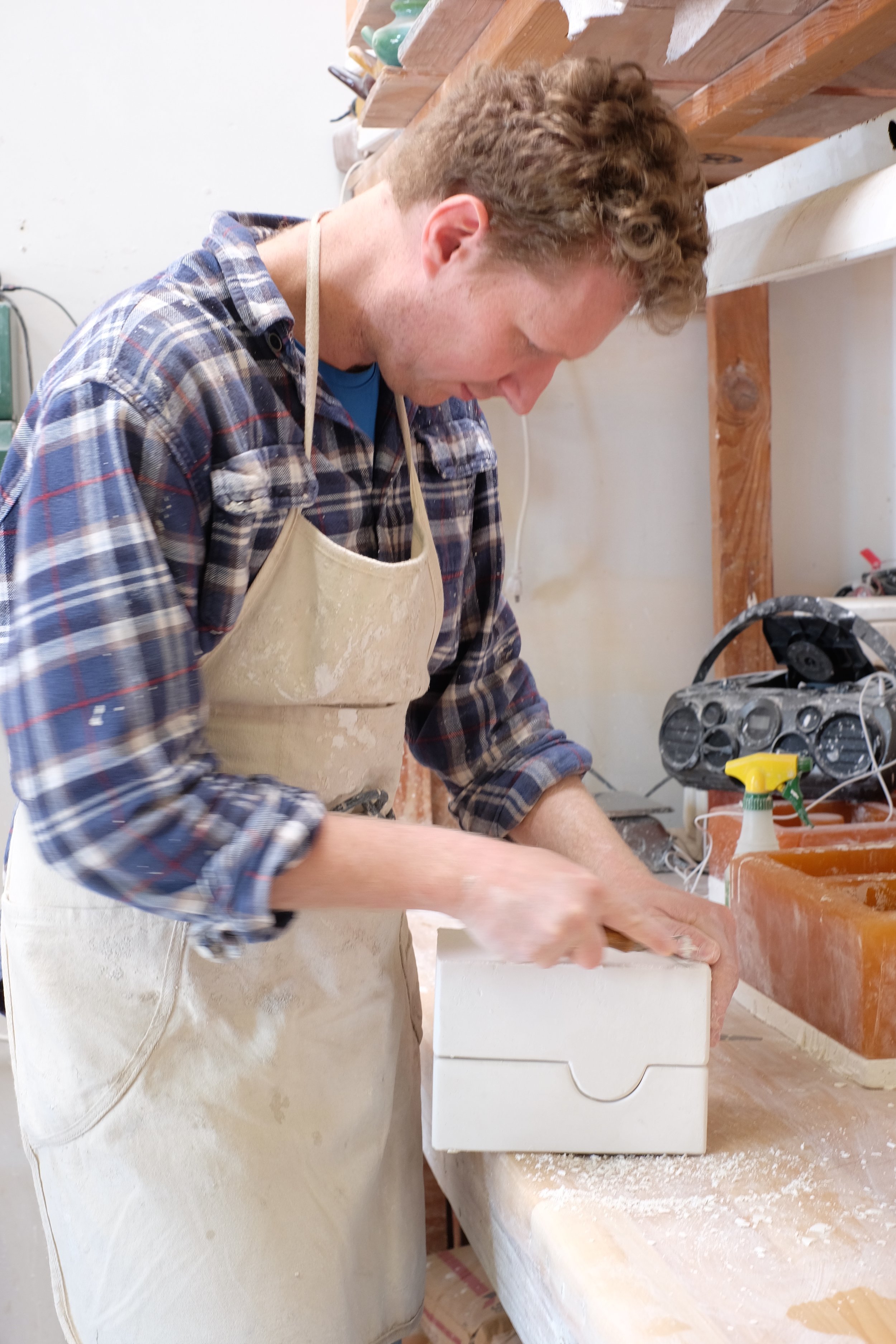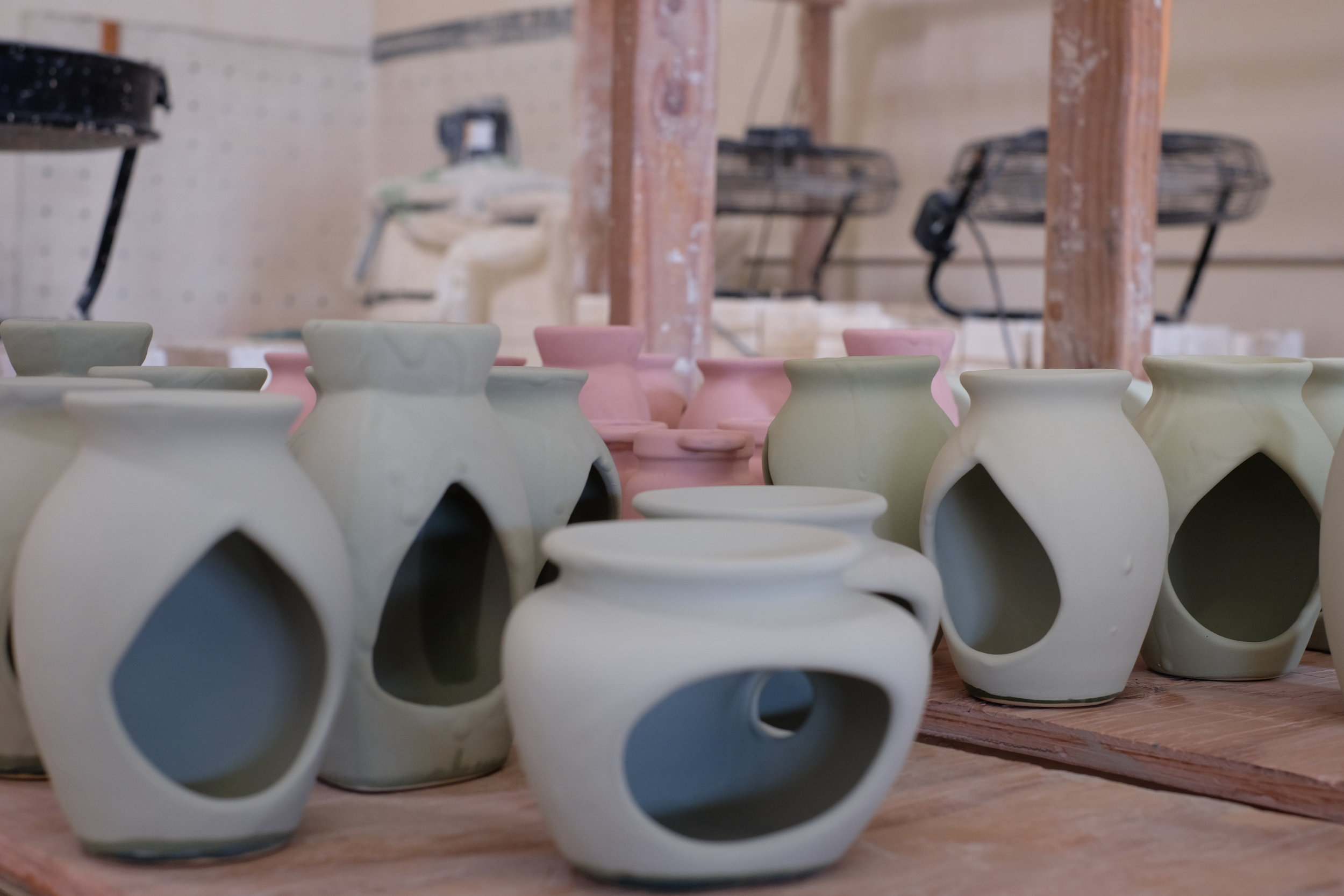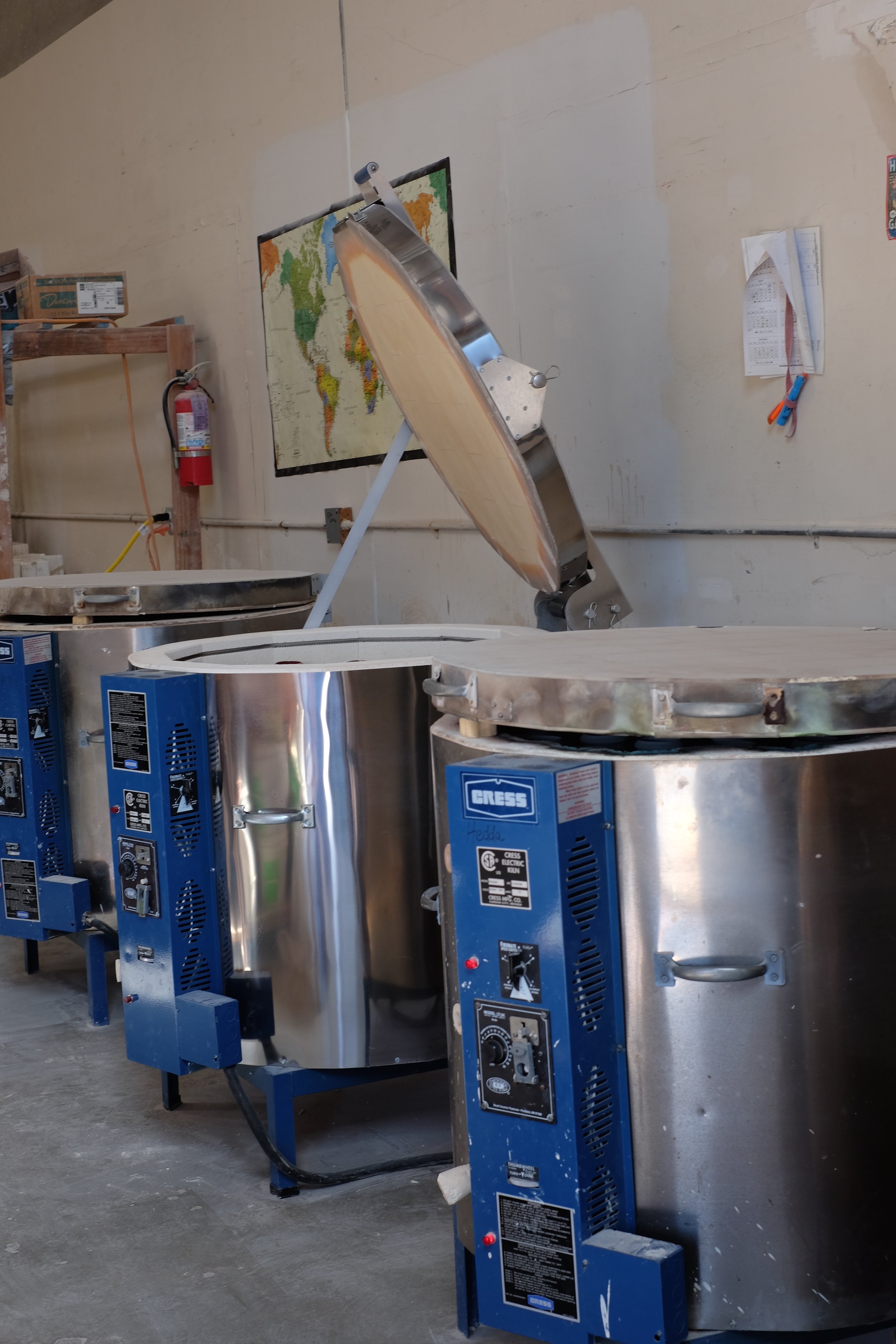It's been about a decade since I first heard about using a neti pot to clean and rinse the nasal passage. One of my first yoga teachers recommended the practice when I was dealing with a gnarly cold. I remember googling "neti pot" back in 2007 and quickly dismissing the treatment. No way was I going to pour warm, salty water through my nose. Sounded uncomfortable and probably unhygienic.
Ten years later, when I was dealing with yet another wild cold, I mustered enough courage to give it a try. I was home in Florida at the time, visiting family for the holidays and went to the local health foods store in search for a neti pot. I unknowingly picked up a hand-crafted ceramic Baraka pot. It's beautiful design and grounded-ness made the idea of nasal rinsing a bit more inviting. I also bought the Baraka Infused Mineral Salts because I figured if I was going to pour salty water through each nostril, the salts might as well have some lovely essential oils. It's all about self-love and rituals, my friend.
This time around, I approached the neti pot with a bit more knowledge, openness, and context. Nasal irrigation has been around for thousands of years, as old as Ayurveda medicine itself. One of the core principles in the Ayurvedic philosophy is that we digest and experience the world around us through our five senses; thus, the Ayurvedic tradition teaches one to keep these sense organs clean to support healthy digestion (physically, mentally, and emotionally) and inspire clear perception and intentional engagement with the self and surrounding world. I'd already been practicing oil pulling, tongue scraping, and self-oil massage (abhyanga) and felt ready to give the neti pot a try. I carefully mixed a heaping 1/2 teaspoon of salt into the pot and gave it a go. After a few adjustments in the angle (you need to tilt your head down and to the side so the water doesn't go down your throat) the water came pouring out! It was instant relief and I was truly amazed at how less congested I was after the treatment. Not only that, but my cold was gone within a few days.
I don't have allergies and really don't get sick very often; however, I still use my neti pot about once a week. For me, it's a nourishing and cleansing ritual that supports clear perception. I want to awaken my senses and engage fully with the world around me and the Ayurvedic rituals, like the neti pot, support this intention.
If you are at all curious about nasal irrigation, I highly recommend the Baraka products. I recently visited the ceramics studio and was struck by their holistic, green, and mindful approach to design and production. They source clay and herbal ingredients as close to home as possible and are careful in their manufacturing and packaging practices. They are committed to the happiness of the their employees, customers, and planet and are striving to support others in living their best lives.
Om Namaste
Meredith
